
Turning 75 today, Mel Machin has represented the Cherries as a player, manager and director of football, carving a unique place for himself in the club's history.
Winning promotion and pulling the Cherries shirt on 126 times as a player before departing for Norwich City, Machin returned as manager 20 years later in 1994.
His 327 matches and six years at the helm at Dean Court tell just a fraction of his tenure in the hot seat, his first season pulling off the Great Escape when the club had looked dead and buried at Christmas.
Financial uncertainty soon put the future of the club in doubt, Machin playing an important role in spearheading efforts to save the club before, in 1998, he became the first Cherries manager to lead the club out at Wembley.
We chronicle Machin's impressive career as a player and manager, and hear from three players who worked extensively under him.
The following text was originally produced in the Manchester City edition of MATCHDAY - the club's programme - back in August.
EARLY CAREER: THE POTTERIES AND BEYOND
Machin was born and raised in Stoke-on-Trent and watched Stoke City with his father during childhood – only to later get his break with cross-town rivals Port Vale, who spotted him as a 15-year-old. Playing for six seasons at Vale Park, Machin even played under general manager Stanley Matthews before moving south for the first time at 21.
Gillingham was the destination for the right midfielder and he made a quick impression, captaining the side on their best-ever FA Cup run in the late 1960s and he even got one over the Cherries in 1969.
His then and future employers were locked in a battle to avoid dropping to the fourth tier and, while the Gills won this battle, at Priestfield Machin had been introduced to coach John Bond and when the latter took over as manager at Dean Court that summer, the midfielder was soon to join him.
GOING UP: MACHIN JOINS THE CHERRIES
Costing Bournemouth £9,000 that December at a time when, despite relegation, optimism was high with Bond allowed to bring some big-name players in.
Machin’s new role at right-back made up a strong defence including John Sainty, Tony Powell and David Stocks, and with Phil Boyer and Ted MacDougall lethal in attack promotion and an open top bus parade was soon secured.
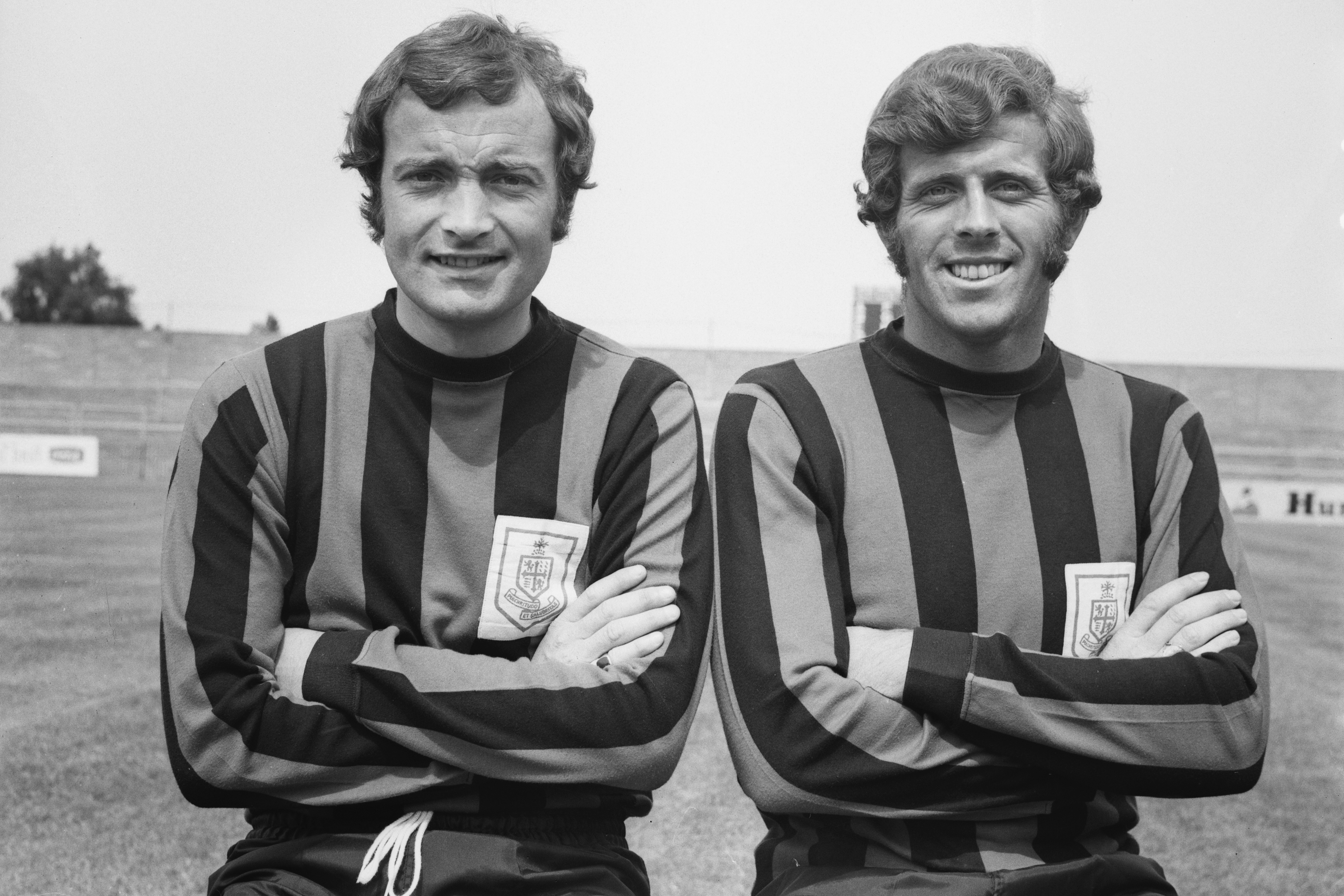
A hairline fracture in his ankle delayed Machin’s start to life back in the third tier but the Cherries were flying and 10,000 crowds became the norm at home matches and in November Machin netted his first goal for the club – eclipsed by the nine MacDougall famously scored on the same day against Margate.
A first ever promotion to the second tier looked likely throughout the campaign until the Cherries were pipped late on by Brighton and Aston Villa, a disappointment and hangover the club wasn’t able to shake off.
LATER CAREER: NORWICH AND NORTH AMERICA
When Bond switched to Carrow Road in 1973 many of the Cherries’ promotion heroes followed, including Machin and he made his top-flight debut against Liverpool, playing well in a 1-1 draw and then the next season netting a hat-trick away at Nottingham Forest.
Machin played for the Canaries at Wembley in the League Cup final, giving away a penalty (but not being sent off, as was the ruling at the time) for a handball on the line as Norwich lost 1-0 to Aston Villa.
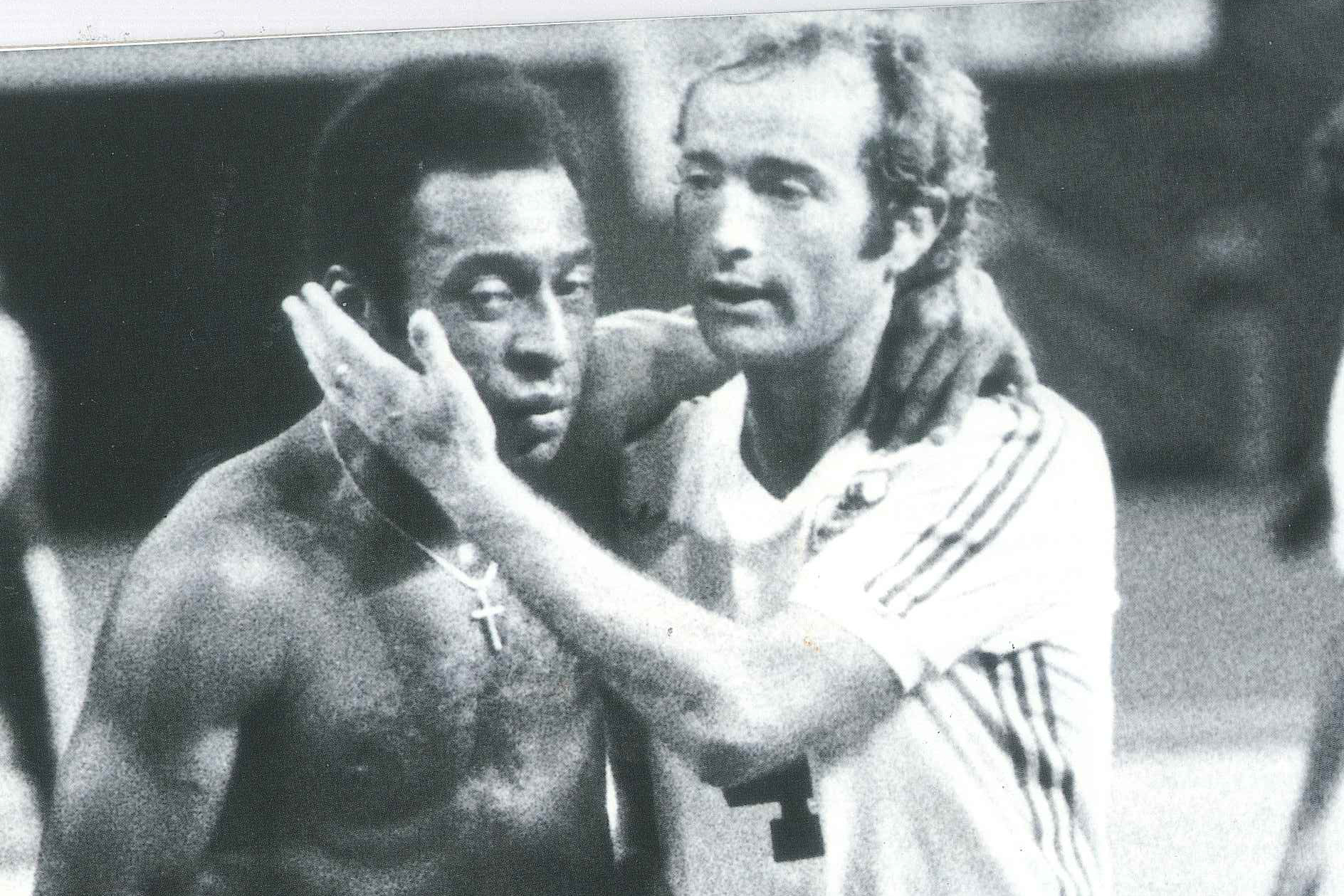
In the late 70s Machin joined former Cherries Micky Cave, Jimmy Gabriel and Steve Buttle at Seattle Sounders in the North America Soccer League, a highlight of Machin’s time across the Atlantic being taking on Pele in the Brazil legend’s final ever competitive game, the striker heading to shake Machin’s hand to show his respect for his performance on the final whistle.
MOVING INTO MANAGEMENT WITH CITY
Retirement from playing soon led to a coaching return for Machin at Norwich and his good work with the club saw him offered the job with today’s opponents at Maine Road.
He soon moulded the City squad into one of the most exciting in the division, won promotion and, in 1989, masterminded a 5-1 win of Manchester United that Alex Ferguson called the lowest point of his career.
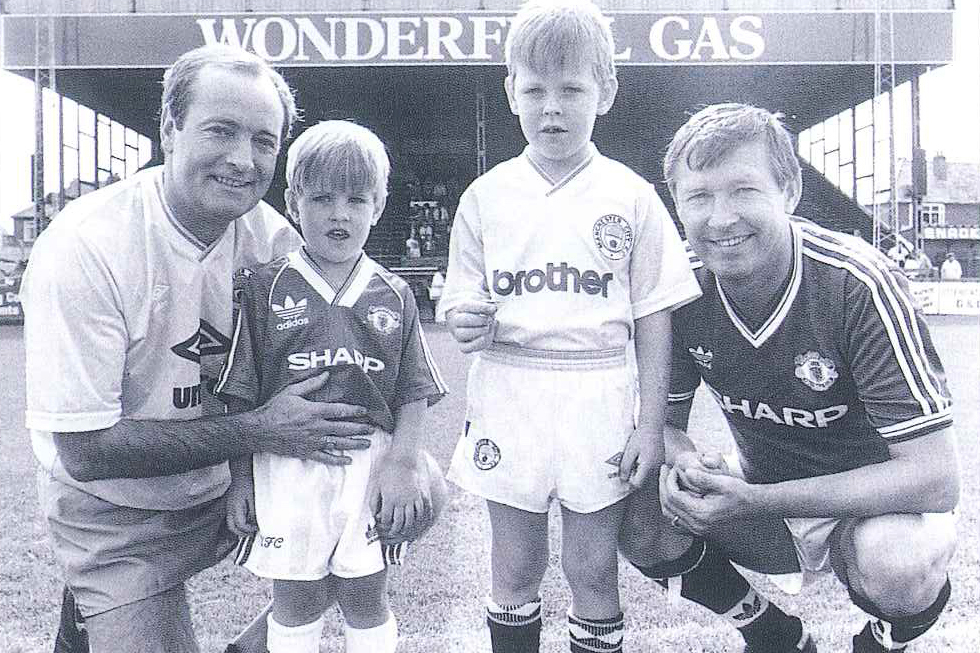
Machin and Ferguson became good friends but the result appeared to be pushing United towards relieving their manager of his duties. However, before Christmas it was instead Machin who was unemployed with City at the foot of the table.
ESCAPING AND MUCH MORE WITH THE CHERRIES
After a short stint with Barnsley, Machin was back with the Cherries, but unlike his previous Dean Court arrival the club were looking down and not up, appearing doomed for relegation with a threadbare squad and under financial constraints.
Despite a slow start, Machin soon galvanised the side and beat the odds to keep the club up in what was christened the Great Escape.
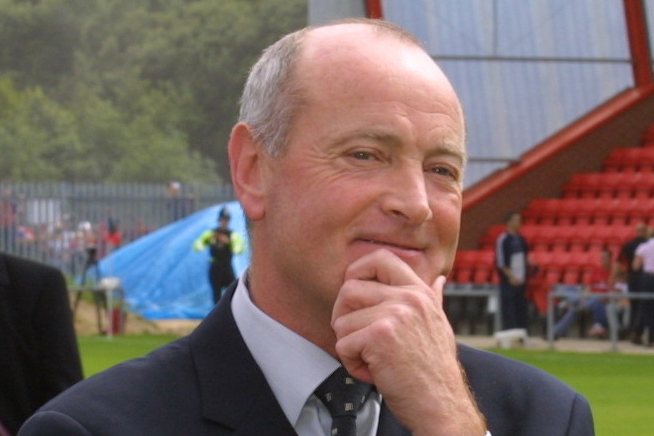
Three years later – and after promoting youth, including a teenage Eddie Howe, into the starting 11 – Machin led the Cherries out at Wembley for the first time in the club’s history, albeit with a triumphant day ending in disappointment and a narrow 2-1 loss to Grimsby in the Auto Windscreens Shield final.
In his latter years as manager here he continued his ability to bring in players of high quality who would shape the future of the club, before moving into a director of football role with the Cherries.
MACHIN'S CHARGES ON PLAYING UNDER THEIR MANAGER
Eddie Howe
"Mel was someone with an incredible aura, as a young player when you’re coming into this environment it can be daunting in loads of different ways. Dealing with the players who are more senior than you and ultimately having to impress the manager to try and get an opportunity.
"Mel had that presence that you wanted to do well for him, please him and I wanted to make him like me and appreciate me as a player. The only way I knew I could do that was to work as hard as I could, show a good attitude and try and catch his eye in some way and thankfully he was brilliant with me from day one and I have everything to thank him for.
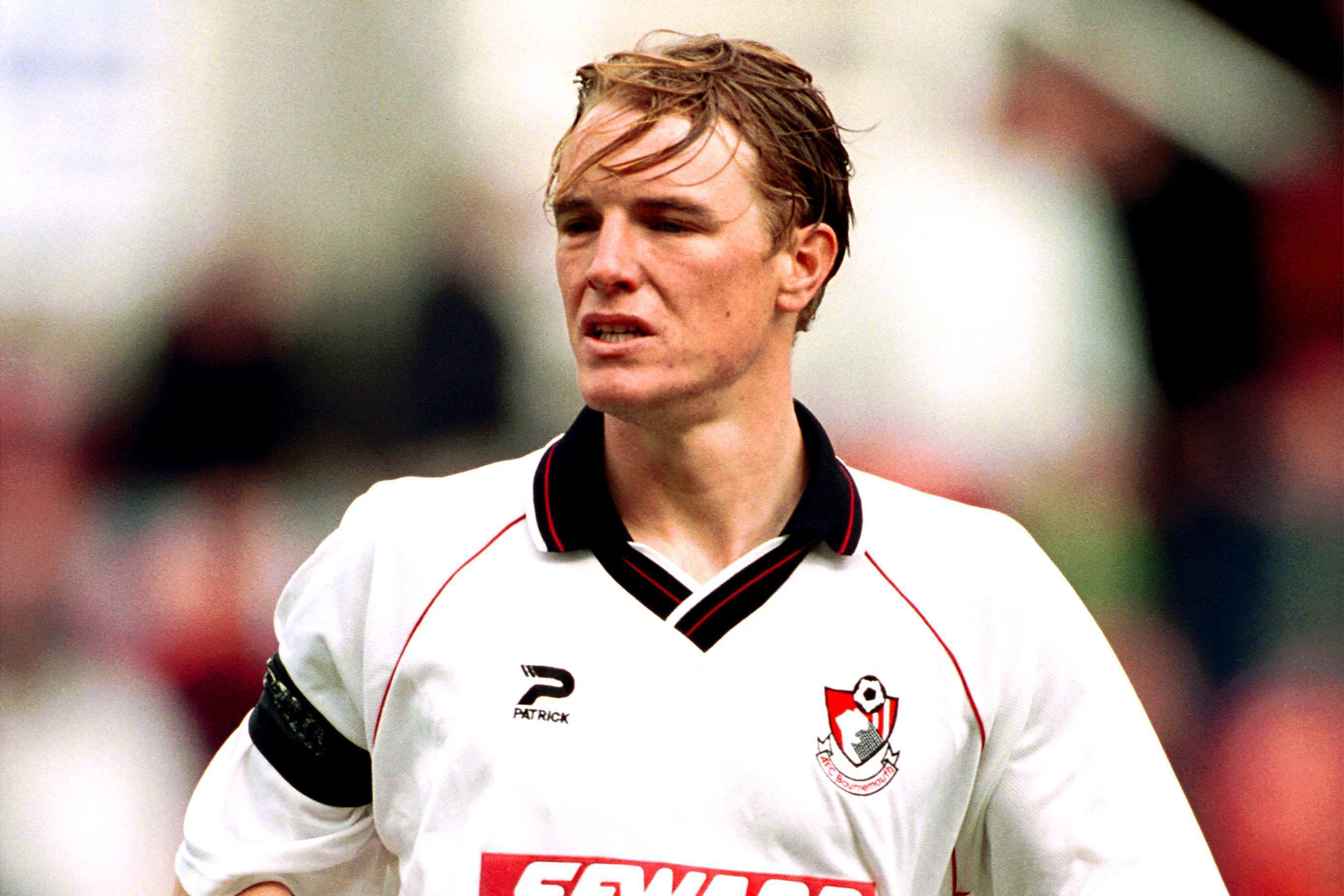
"Going back to that time we had a very small squad, nothing like the array of riches we have now in the Premier League. He had to utilise every tool that he had so he looked at the youth team and the reserve team for players who could help him, and he did that really well.
"He worked us hard on the training ground and was an inspiring character because he made me work as hard as I could to try and achieve everything that I could.
"He’s probably had a huge bearing on my management career without me even knowing. It’s very difficult to define because your experience shape you for the future.
"As I was a young player I’m sure I was looking at him and taking information about how to play the game, loads of different things that I’m sure have shaped me as a manager."
Claus Jorgensen
"Mel was a bit scary to work for at times but I will always be eternally grateful to him for giving me my chance in England!
"I watch a lot of football and seeing players slip over is a pet hate of mine. We played Cardiff away and I nearly cost us a goal after slipping. Mel ripped into me at half-time and asked if I had the right studs in my boots. I had the smallest studs you had ever seen. I changed them at half-time, set up two goals in the second half and we won 2-1. I never slipped over again.
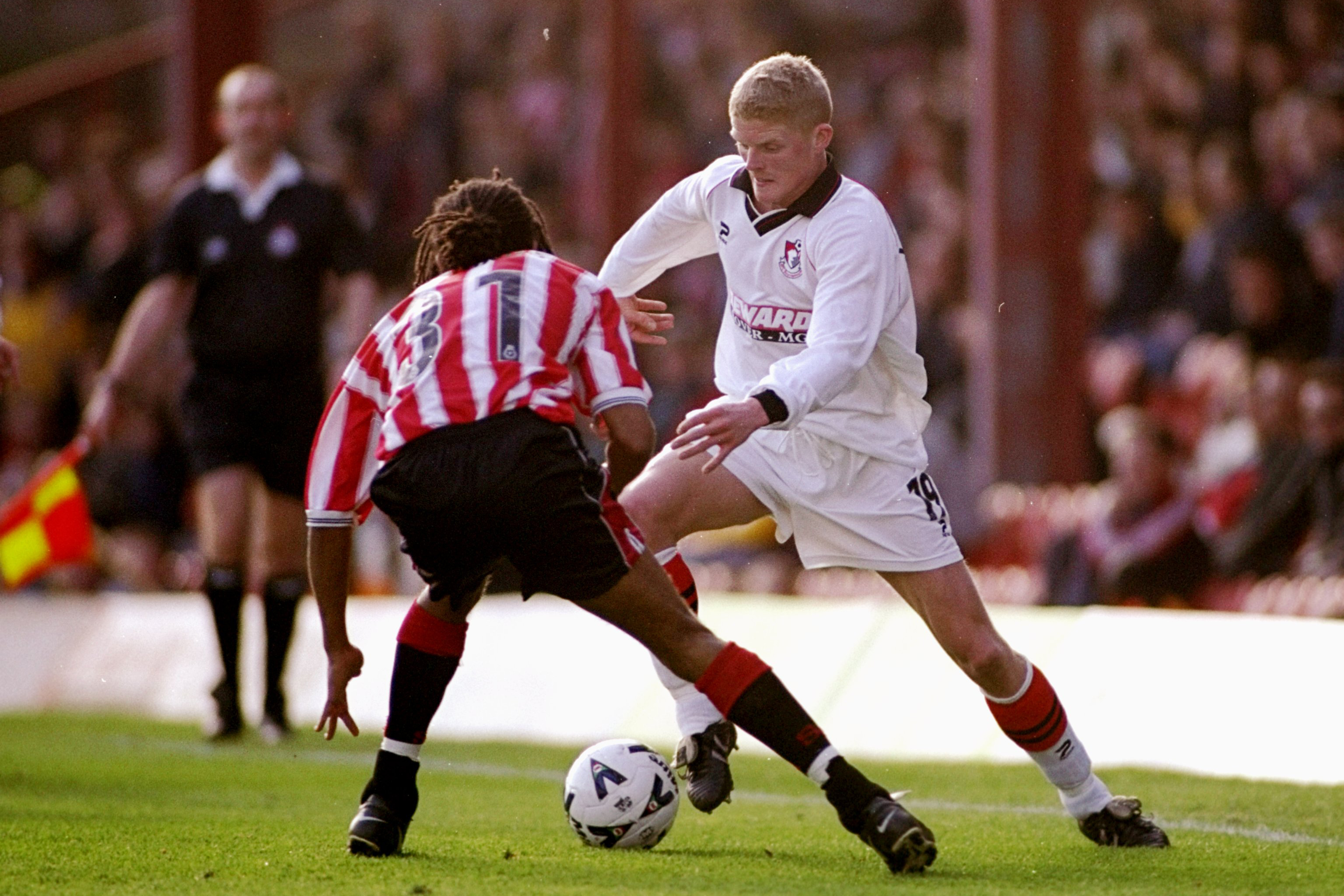
"Mel never forgot anything and, as I played left midfield, I always played one half in front of the dugouts. We had James Hayter on the right and you knew either me or him would get it at half-time. It probably wasn’t quite like that but that’s how it felt.
"If you made a bad pass after ten minutes but were leading 1-0 at half-time, you thought you might have got away with it. But he would always remind you where you could improve.
"Mel always wanted us to play football. He liked players who could play and I was fortunate to be given a chance by him."
Mark Morris
"Mel was sometimes quite a strange man to understand but, in his own awkward style, he made people play. For me, it was something I hadn’t experienced in football. I had played under Dave Bassett, Harry Redknapp, Tony Pulis and Steve Harrison and they were what I would call motivational managers.
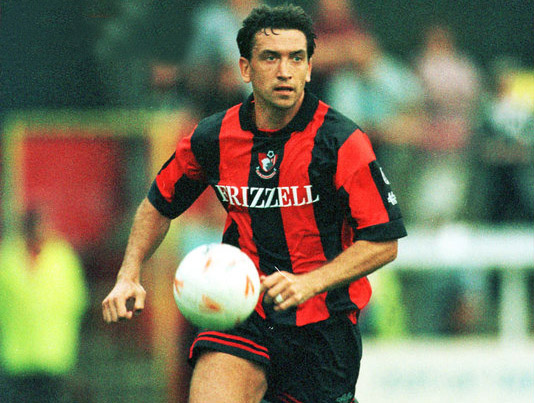
"I wouldn’t say Mel was motivational, but you knew what you had to do. You had to play because that was what he wanted.
"He was probably the start of how the club went in terms of its playing style. He was the building block for people like Sean O’Driscoll and Eddie Howe. I’m sure he had an influence on the way they liked to play, without people even realising it. It almost happened by default."







